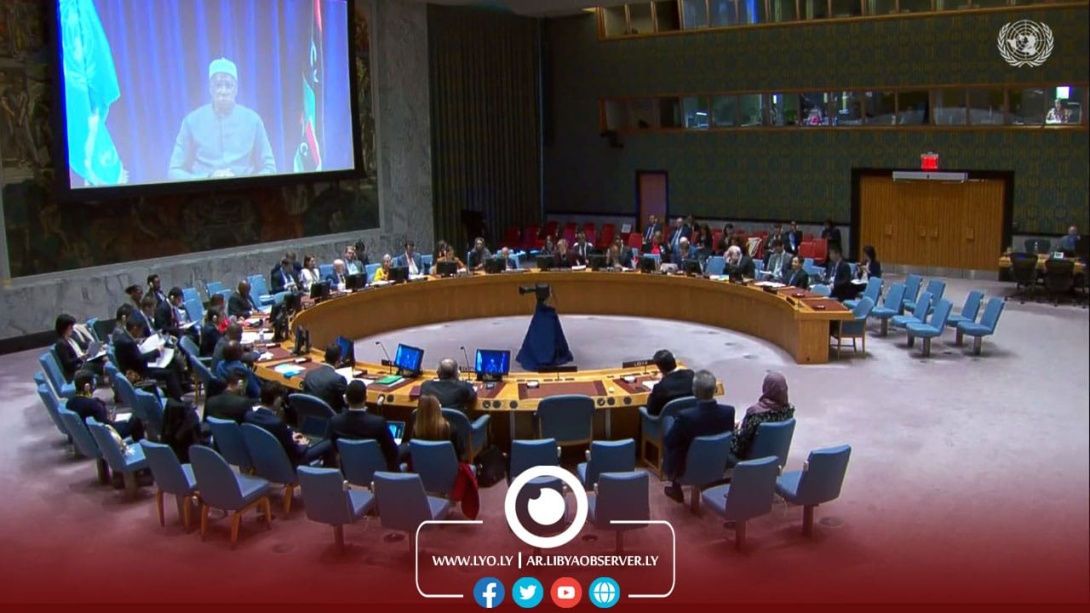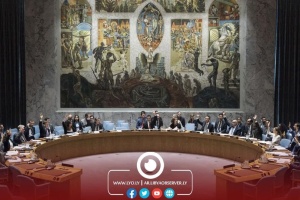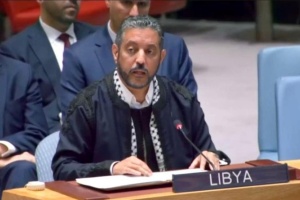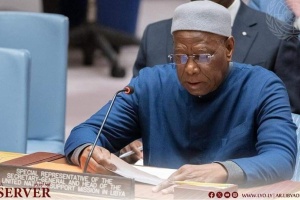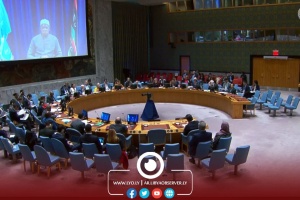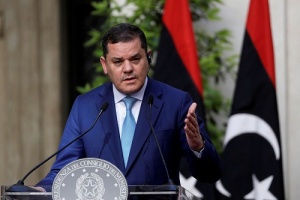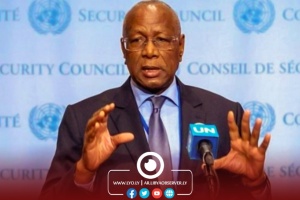The members of the Security Council reaffirmed Wednesday in a joint statement their strong commitment to an inclusive, Libyan-led and Libyan-owned political process, facilitated by the United Nations, which would build on progress achieved in negotiations thus far and address the issues of who will govern the country through elections.
The members of the Security Council reiterated their support for the Special Representative of the Secretary-General (SRSG) for Libya and Head of the United Nations Support Mission in Libya (UNSMIL), Abdoulaye Bathily, in particular his mediation and good offices role to further an inclusive political process, in line with relevant Security Council resolutions, building on the basis of the Libyan Political Agreement and the Libyan Political Dialogue Form Roadmap, and building on progress in the 6+6 negotiations aimed at producing viable electoral laws.
They expressed appreciation to the Kingdom of Morocco for hosting the 6+6 Committee in Bouznika from 22 May to 6 June 2023. The members of the Security Council called upon the international community to fully support the SRSG and UNSMIL in the implementation of their mandate.
The members of the Security Council urged the Libyan political institutions and key stakeholders to redouble their efforts to finalise a pathway to deliver holding of free, fair, transparent and inclusive national presidential and parliamentary elections across Libya as soon as possible.
They called upon all stakeholders to address differences through dialogue, in a spirit of compromise, to reach agreement on politically contested issues pertaining to elections, and in this regard, to engage fully, transparently and in good faith with the SRSG in a Libvan-led and UNSMIL facilitated negotiation.
The members of the Security Council reiterated their call on all stakeholders to uphold guarantees concerning the independence and integrity of the inclusive electoral process and election results. The Security Council further emphasises the importance of providing a safe environment for civil society organisations to work freely and to protect them from threats and reprisals.
They underlined the importance of an inclusive reconciliation process based on the principles of transitional justice and accountability and welcomed the efforts of the Presidential Council to launch the national reconciliation process, with the support of the African Union, including facilitating a meeting on national reconciliation in Libva. The members of the Securit Council took note in this reaard of the convening in Brazzaville on 20 Julv of the Preparatorv Committee for national reconciliation.
The members of the Security Council recoanised the efforts of the High Financial Oversight Committee on revenue management and took note of the announcement to further the unification of the Central Bank of Liba. The Security Council reaffirms its intention to ensure that assets frozen pursuant to paragraph 17 of resolution 1970 (2011) shall at a later stage be available for the benefit of Liban people.
They expressed serious concern about recent violent clashes in Tripoli, which underlined the fragility of the security situation in Libya and the need for progress on the political and security tracks, including by continuing the efforts of the 5+5 Joint Military Commission. They expressed their regret for the loss of lives and injuries, including amongst civilians. They urged all parties to refrain from any acts of violence and incitement to violence, to ensure the protection of civilians, to comply with their obligations under international law, in particular international human rights law and international humanitarian law, and to preserve the security gains achieved in recent years.
The members of the Security Council called on all parties to uphold the 23 October 2020 ceasefire agreement and reiterated their call on all parties to accelerate full implementation of its provisions, including the Action Plan agreed by the 5+5 Joint Military Commission in Geneva on 8 October 2021, which is to be implemented in a synchronized, phased, gradual and balanced manner.
In this regard, the members of the Security Council urged Member States to respect and support its full implementation, including through the withdrawal of all foreign forces, foreign fighters and mercenaries from the country without further delay. The members of the Security Council underscored the need for establishment of an inclusive, unified, accountable, civilian-led security architecture for Libya as a whole.
They recalled that individuals or entities who threaten the peace, stability or security of Libya, or obstruct or undermine the successful completion of its political transition, including by obstructing or undermining the elections, may be designated under Security Council sanctions.
The members of the Security Council reaffirmed their strong commitment to the sovereignty, independence, territorial integrity and national unity of Libya.

